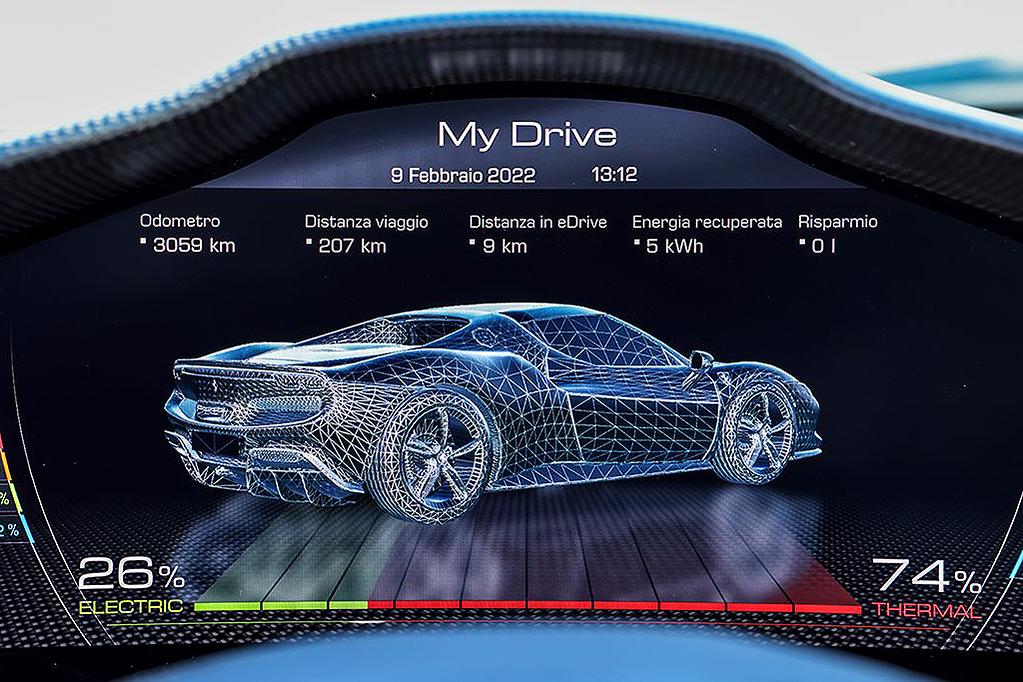The China Factor: Examining Challenges Faced By Premium Auto Brands

Table of Contents
Intense Competition and Local Players
The Chinese premium auto market is fiercely competitive. Established international players face a formidable challenge from rapidly evolving domestic brands.
The Rise of Domestic Brands
Chinese automakers are no longer simply producing budget-friendly vehicles. Significant investments in research and development, coupled with supportive government policies, have fueled a surge in innovation.
- Increased investment in R&D and electric vehicle (EV) technology: Domestic brands are aggressively pursuing advancements in areas like battery technology, autonomous driving, and connected car features, directly competing with established premium brands.
- Strong government support and favorable policies for domestic brands: Subsidies, tax breaks, and preferential treatment are helping Chinese brands gain market share and compete on price.
- Sophisticated marketing campaigns targeting younger, tech-savvy consumers: Domestic brands leverage digital marketing and social media effectively, resonating with younger demographics who are crucial to the premium segment's growth. This targeted approach presents a significant challenge to traditional marketing strategies.
Price Sensitivity and Value Perception
While Chinese consumers increasingly desire premium features and technology, they remain price-sensitive. This necessitates a careful balance between luxury and affordability.
- The need for competitive pricing strategies without compromising brand image: Premium brands need to offer attractive pricing models without diluting their brand prestige. This involves carefully managing costs and optimizing supply chains.
- Balancing luxury features with affordability to appeal to a broader customer base: Offering different trim levels and packages tailored to different price points is crucial to expanding market reach.
- Strategic partnerships with local financing companies: Collaborating with local financial institutions can offer competitive financing options, making premium vehicles more accessible to a wider range of consumers.
Regulatory Hurdles and Infrastructure
Navigating the regulatory landscape and adapting to evolving infrastructure are critical for premium auto brands in China.
Navigating Complex Regulations
China's automotive regulatory environment is complex and constantly evolving. Meeting stringent emission standards, safety regulations, and import tariffs adds significant complexity to market entry and operations.
- Compliance costs and the need for specialized legal expertise: Understanding and adhering to these regulations requires significant investment in legal and compliance resources.
- Adapting to frequent changes in government policies and regulations: The regulatory landscape is dynamic, necessitating continuous monitoring and adaptation of business strategies.
- Potential for delays and unforeseen expenses related to regulatory approvals: Navigating bureaucratic processes can lead to delays and unexpected costs, impacting time to market and profitability.
Charging Infrastructure and EV Adoption
The rapid growth of the EV market in China presents both opportunities and challenges. Sufficient charging infrastructure is crucial to support sales and satisfy consumer expectations.
- Building extensive charging networks to support EV sales: Premium brands must invest in or partner with companies building nationwide charging networks to alleviate range anxiety.
- Meeting consumer demand for longer range and faster charging times: Chinese consumers expect EVs to offer comparable range and charging speeds to gasoline-powered vehicles.
- Understanding and adapting to local charging habits and preferences: Consumer preferences for charging locations and methods vary across regions, necessitating localized strategies.
Cultural Nuances and Consumer Preferences
Understanding Chinese consumer behavior is paramount to success in the premium auto market.
Understanding Consumer Behavior
Chinese consumers display unique preferences and buying habits compared to other markets. Brand prestige, digital influence, and personalized experiences play significant roles.
- Emphasis on status symbols and brand prestige: Premium auto brands hold significant status, making brand image and perception crucial factors.
- Importance of digital marketing and social media influence: Online reviews, social media endorsements, and key opinion leaders (KOLs) heavily influence purchasing decisions.
- Preference for personalized customer experiences and after-sales service: Exceptional customer service, tailored experiences, and convenient after-sales support are essential for building loyalty.
Tailoring Products and Marketing
Premium auto brands must adapt their product offerings and marketing approaches to resonate with Chinese cultural values and preferences.
- Localized product development and customization options: Offering features and specifications tailored to local preferences can enhance market appeal.
- Targeted marketing campaigns that resonate with Chinese culture and values: Marketing strategies should reflect an understanding of local values, aesthetics, and communication styles.
- Building strong relationships with key influencers and opinion leaders: KOL collaborations and strategic partnerships can boost brand awareness and drive sales.
Conclusion
The Chinese automotive market offers substantial opportunities for premium auto brands in China, but requires a strategic approach that accounts for the unique "China Factor." Intense competition, intricate regulations, and discerning consumers demand significant investment, adaptation, and localization. By understanding these challenges and implementing proactive strategies, premium brands can successfully navigate this dynamic market and achieve sustainable growth. To thrive, prioritize adaptation, technological innovation, and strong local partnerships. The future success of your brand depends on understanding and mastering the intricacies of the premium auto market in China.

Featured Posts
-
 The Challenge Season 41 Spoilers Fan Favorite Eliminated Champs Remain
May 11, 2025
The Challenge Season 41 Spoilers Fan Favorite Eliminated Champs Remain
May 11, 2025 -
 Campeonato Uruguayo Segunda Division 2025 Fecha De Inicio Y Detalles Del Sorteo
May 11, 2025
Campeonato Uruguayo Segunda Division 2025 Fecha De Inicio Y Detalles Del Sorteo
May 11, 2025 -
 Did Tylas Coachella 2025 Look Copy Britney Spears The Singer Responds
May 11, 2025
Did Tylas Coachella 2025 Look Copy Britney Spears The Singer Responds
May 11, 2025 -
 Conor Mc Gregor On Fox News Analyzing His Controversial Interviews
May 11, 2025
Conor Mc Gregor On Fox News Analyzing His Controversial Interviews
May 11, 2025 -
 Did Michael Kays Question Spark Juan Sotos Hot Streak
May 11, 2025
Did Michael Kays Question Spark Juan Sotos Hot Streak
May 11, 2025
